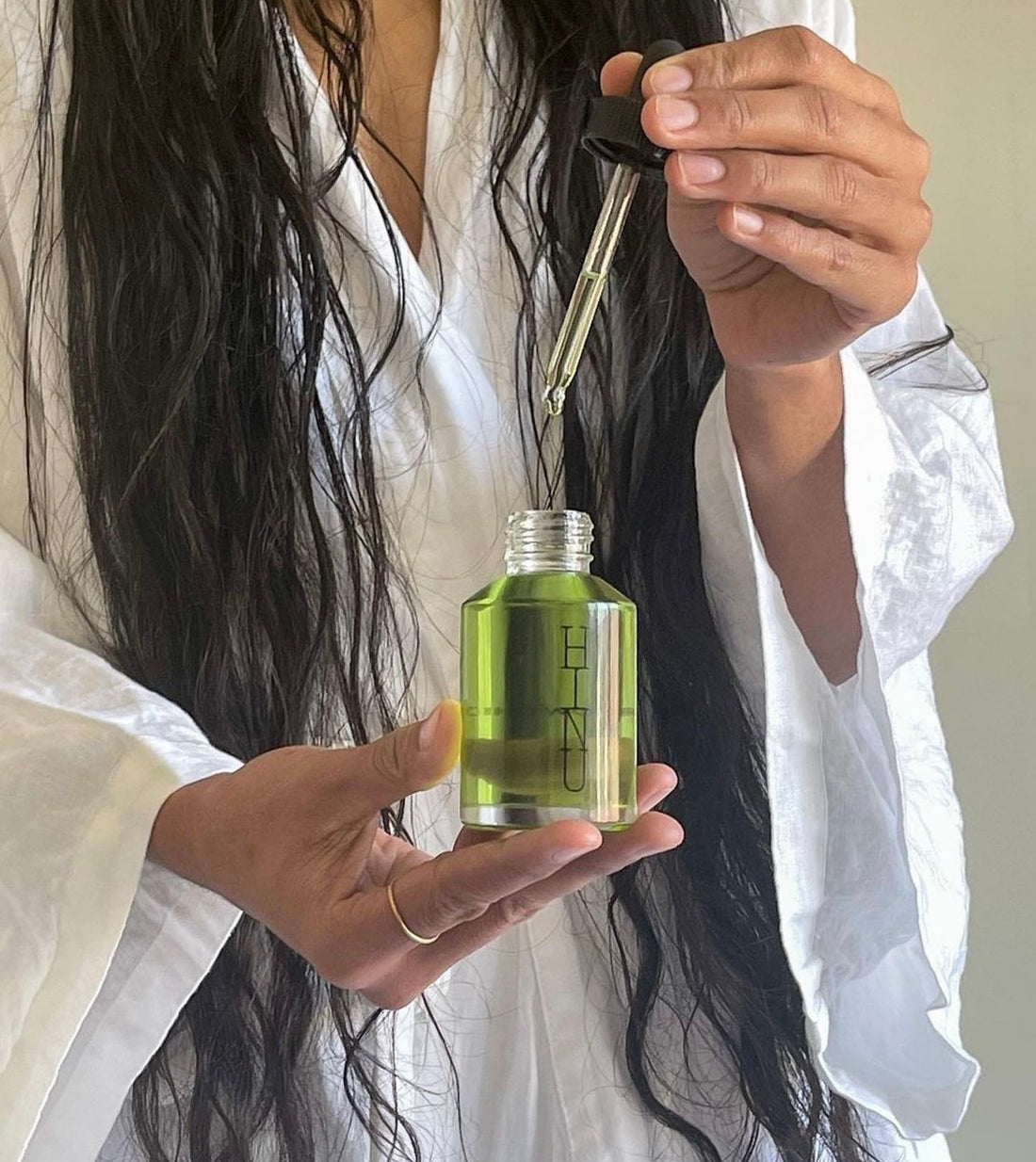
There is a humble plant, familiar to many of us, which has long been rooted in the margins of our gardens, kitchens, and perhaps our consciousness. It answers to the name of Rosemary. Its slender, evergreen leaves, along with the delicate flowers, often a shade of serene blue, emit an aroma that transcends its physical presence.
The name "rosemary" originates from Latin and is derived from the words "ros," meaning "dew," and "marinus," meaning "sea." Thus, rosemary translates to "dew of the sea." This name likely references the plant's native habitat along the Mediterranean Sea, where it can often be found growing naturally in coastal areas.
Here I’ll explore both the historical appreciation for this potent plant and modern sciences evolving understanding of its role in supporting hair growth and reducing inflammation.
Historical Use of Rosemary for Hair Care
Much like an old song, rosemary's role in hair care has been passed down through generations and across civilizations. This unassuming plant has been recognized by many cultures for its potent properties.
The ancient Egyptians, known for their intricate hieroglyphics and monumental pyramids, had an eye for the remarkable amidst the mundane. To them, rosemary was more than just a fragrant herb; it was an integral part of their medicinal toolkit. Delving into the silent echoes of the past, rosemary has been found in the timeless embrace of the canopic jars, cradled in the eternal chambers of Egyptian tombs. This cryptic encounter with rosemary brings to light its potent significance in an era known for its medical and botanical breakthroughs.
Leaping across the timeline, we land in the era of the Greeks and Romans, who shared a similar appreciation for this wonder herb. Their understanding of the world, marked by a profound respect for nature, recognized the restorative essence of rosemary. From Hippocrates to Pliny the Elder, their scripts often intertwined the tales of this herb with their health and wellness practices. In their hands, rosemary wasn’t just a plant, it was an embodiment of healing and well-being, its role in hair care being one of the many verses in its ongoing ballad.
The Science Behind Rosemary and Hair Growth
While our ancestors' stories paint an enchanting picture of rosemary's power, the sceptical minds of the present ask for more concrete evidence. And it seems that science is finding the same threads of truth woven into these tales.
One study published in 2015 found that rosemary oil can be as effective as minoxidil, a common hair growth treatment, for people with androgenetic alopecia, often called male- or female-pattern baldness. The researchers noticed similar improvements in hair count after six months of treatment, but the group treated with rosemary had less scalp itching.
The mechanisms by which rosemary oil promotes hair growth are not entirely understood, but several hypotheses have been proposed based on its known chemical composition and results in recent studies. Like all good symphonies this one has many movements, here are a few of the ways rosemary can work to support hair growth:
Improved Circulation - Some evidence suggests that when rosemary oil is applied to the scalp, it stimulates blood circulation. The enhanced blood flow then stimulates hair follicles, potentially promoting hair growth.
Anti-inflammatory Properties - Rosemary oil has anti-inflammatory properties. Inflammation can contribute to hair loss, particularly in conditions like alopecia areata and androgenetic alopecia. By reducing inflammation, rosemary oil might help create a healthier environment for hair growth.
Antioxidant Effects - Rosemary oil has powerful antioxidant effects. Oxidative stress can damage hair follicles and has been linked to hair loss. By neutralising free radicals, the antioxidants in rosemary oil might help protect hair follicles and promote healthier hair growth.
Dihydrotestosterone (DHT) Blocking - Rosemary oil may inhibit the action of an enzyme called 5-alpha-reductase. This enzyme converts testosterone to dihydrotestosterone (DHT), a hormone that has been implicated in hair loss of both men and women. By inhibiting this enzyme, rosemary oil might help prevent or slow hair loss.
Anti-microbial properties - Rosemary oil has antimicrobial properties which help protect the scalp from infections that can cause hair loss.
Therein lies the magic of rosemary - a humble garden dweller wielding potential for healthier, stronger hair. Science continues to reveal its mechanisms, aligning with the wisdom of our ancestors. Improved circulation, inflammation control, antioxidant effects, DHT-blocking abilities, and antimicrobial properties all weave together into rosemary's potent narrative for hair health. As our understanding deepens, we can already incorporate rosemary into our hair care rituals, inspired by both age-old practices and modern-day research.
The Journey Thus Far
We've wandered together through the green, fragrant corridors of history and tiptoed around the precise, complex laboratories of modern science, weaving a tale about our humble, yet powerful protagonist – rosemary. This aromatic herb, its slender leaves carrying whispers of the Mediterranean breeze, has a story that is as deep and fascinating as its scent.
Today, science, in its rigorous pursuit of knowledge, is beginning to unlock rosemary's secrets, confirming the wisdom of our ancestors. Preliminary findings are revealing that the rosemary oil is an important part of the potion your hair has been thirsting for. By improving blood circulation, it brings new life to our hair follicles, while its anti-inflammatory properties soothe an irritated scalp, making it an ideal haven for hair to thrive. Thus it is for both ancient wisdom and modern science that we proudly incorporate rosemary’s potent properties into our hair growth oil.
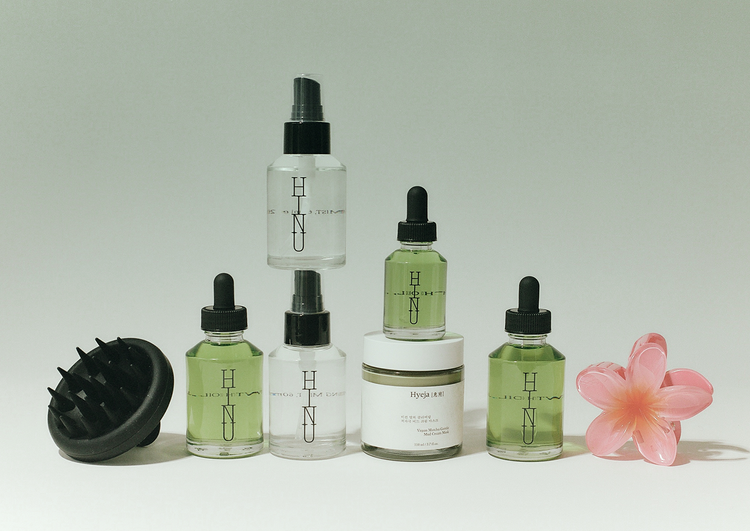
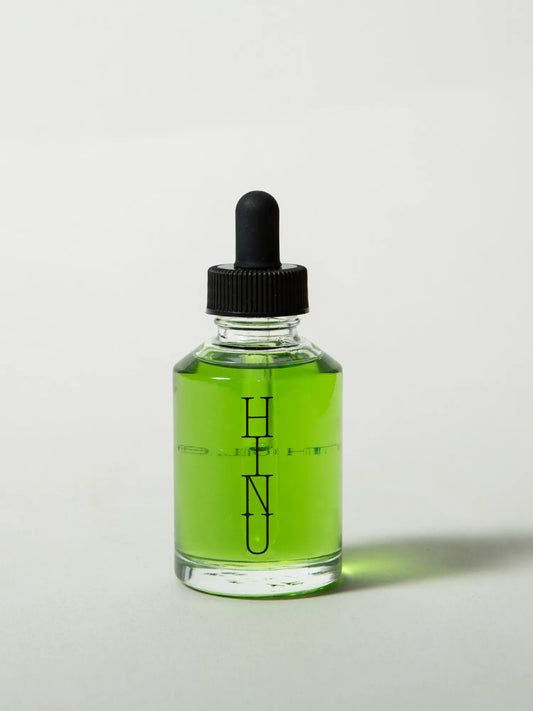
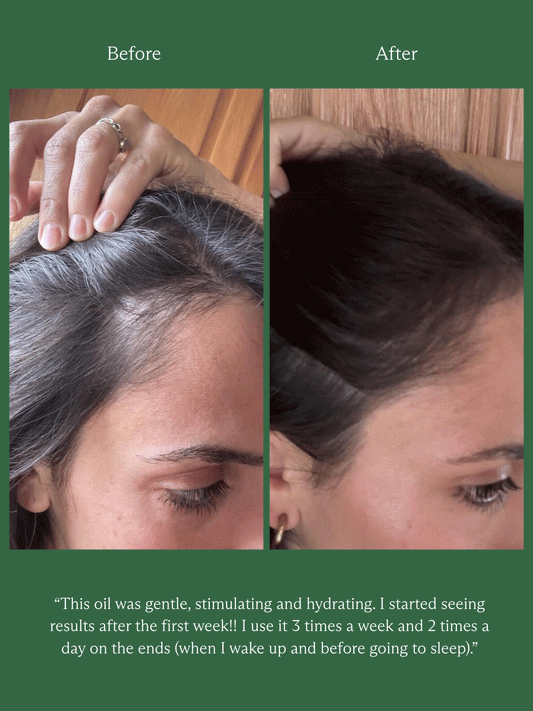
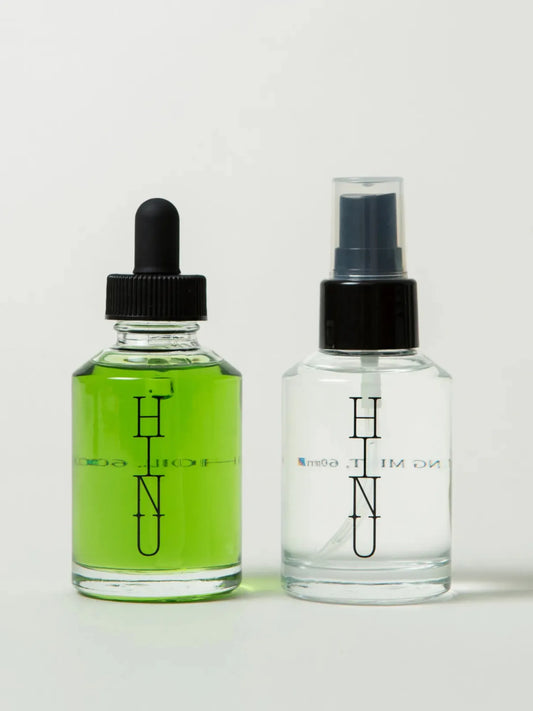



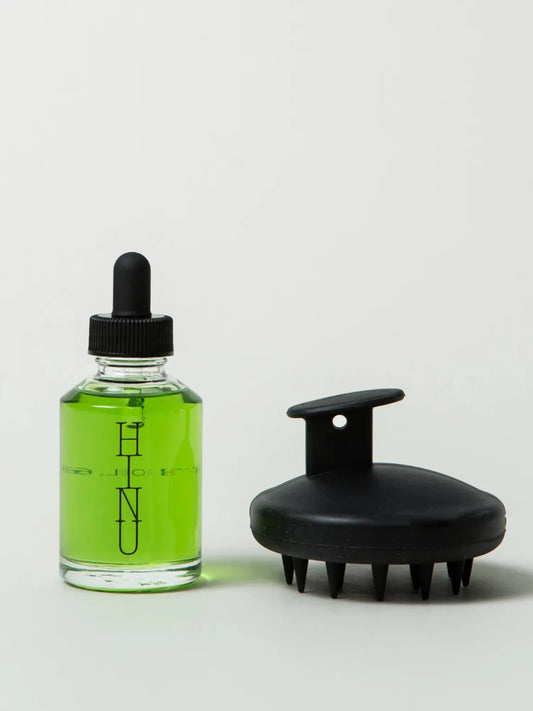

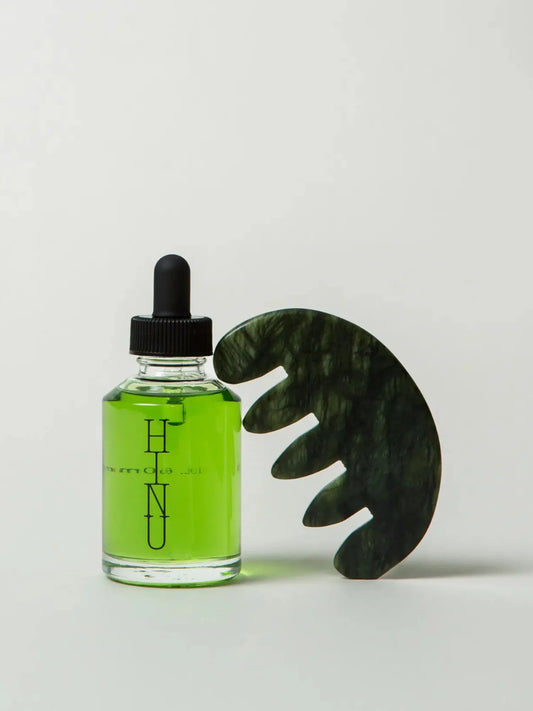


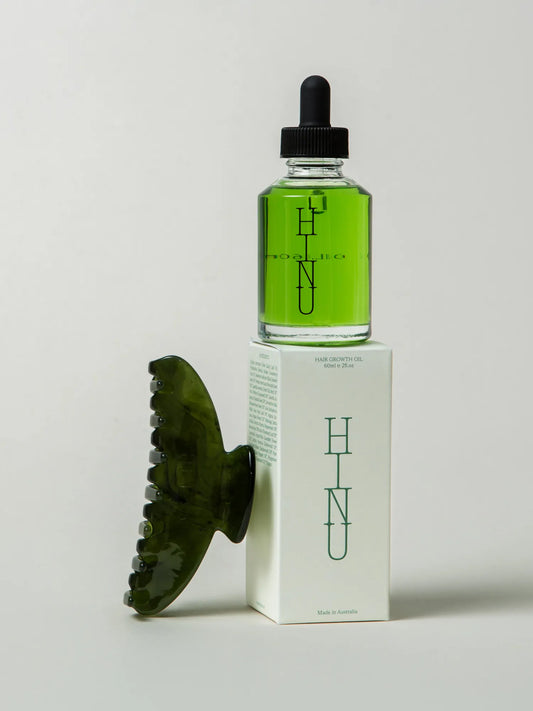



1 comment